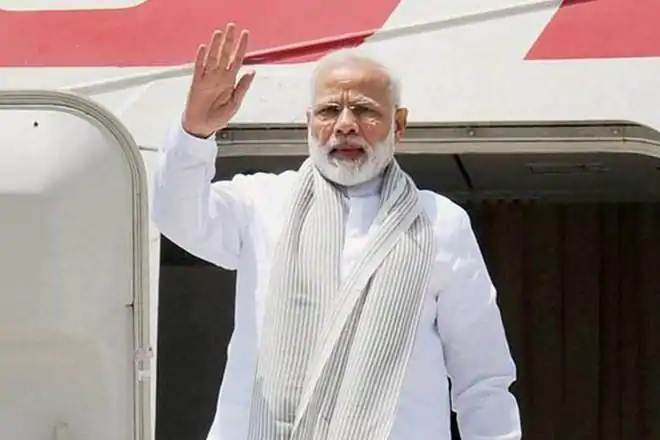Eyeing robust security architecture in the immediate neighbourhood in the Indian Ocean, Prime Minister Narendra Modi heads to the Maldives and Sri Lanka on Saturday after a huge victory in the General elections.
The visit to the Maldives and Sri Lanka are indicative of India’s ‘Neighbourhood-First Policy’ and the `SAGAR Doctrine’ (Security and Growth for All in the Region) doctrine.
With India playing the role of a security provider for the entire Indian Region, cooperative approaches assume significant importance.
What is SAGAR Doctrine?
Underlining the growing salience of the Indian Ocean and global maritime commons in India’s strategic calculus, SAGAR Doctrine was unveiled by Prime Minister Modi in 2016.
It calls for intensifying cooperation among navies and maritime agencies of the world to engineer virtuous cycles of cooperation.
Linking ‘SAGAR’ doctrine with the larger project of transforming India by developing the Blue Economy, the growing indigenization of the Indian naval capability through Make in India has been underscored.
India-Maldives Maritime Cooperation
Both India and the Maldives earlier this year had agreed to deepen their maritime security cooperation in the Indian Ocean Region (IOR) through coordinated patrolling and aerial surveillance and give a new momentum to overall military ties. Both sides have agreed to respect each side’s concerns and aspirations for the stability of the Indian Ocean region (IOR) and not allow their respective territories to be used for any activity inimical to their interests.
India is concerned over China’s efforts to expand influence over the Maldives.
Bilateral visits: Like India’s `neighbourhood first policy’, these two countries follow `India First’ ”policy.
Briefing the media ahead of Modi’s first bilateral visits, Foreign Secretary Vijay Gokhale said the choice of the two countries underlined the government’s continued emphasis on the neighbourhood-first policy.
Besides addressing the Majlis (Parliament of Maldives) on June 8, Modi with Maldivian President Ibrahim Solih, will also remotely inaugurate two completed projects – Composite Training Center for training the Maldives National Defence Forces.
And the Coastal Surveillance Radar System, that India has shared with a number of other countries in the region as well. The idea is to monitor white shipping and to help that country to preserve its sovereignty in its EEZ (Exclusive Economic Zone).
Out of the $ 200 million budgetary support that India had pledged to help the government of Maldives, so far $50 million has been given as cash support for budgetary purposes and the rest of it will be in terms of Treasury Bills. “This is an ongoing process, as and when their Central Bank issues these treasury bills,” said Gokhale.
The two countries are in the process of finalizing the currency swap agreement which is under SAARC. The Maldives has also requested for an enhancement of the amount as well as an extension of the rollover period and that is close to finalization.
Agreements related to customs, white shipping, and training of civil servants among others will be inked in both countries.
With a very clear message of solidarity in the wake of the Easter bombings, Modi will visit Sri Lanka on June 9. During his short and very packed visit, Modi will hold meetings with the President Maithripala Sirisena, the Prime Minister Ranil Wickremesinghe. He will also meet the leader of the opposition Mahinda Rajapaksa and have a meeting with Sampanthan who heads the TNA, the Tamil parties.
During his talks in Sri Lanka, Modi is likely to propose a security umbrella which will be helpful for both the countries.

